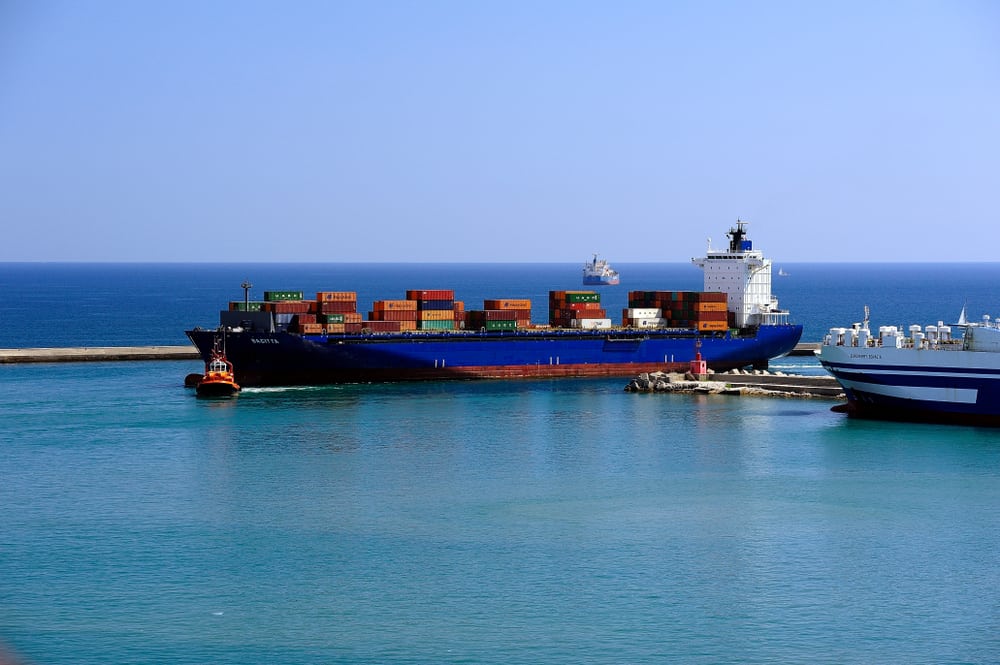
Good day,
Just as maritime freight rates seem to be seeing the light of day after trudging low over the initial half of the year, the impending IMO sulfur cap regulation and the organization’s general push towards stricter environmental standards is worrying major container lines. The regulation that is set to be enforced by 2020, is expected to pile up the fuel costs as low-sulfur fuels need more refining and also force shipping lines to phase out unsuitable vessels and replace them with new ones.
In an interview with Bloomberg, Maersk’s director for regulatory affairs Simon Bergulf pointed out that high crude prices, tight availability of compliant fuels, and investment in R&D to be some of the issues that would drive up costs running up to 2020. Maersk believes this move could add at least $2 billion to its annual fuel bill, a situation that would ring true with all container lines. Maritime being the backbone of global supply chains would mean that this spending excess would eventually seep into consumers’ wallets from across the world.
Did you know?
Almost three-quarters of online consumers in Indonesia are using mobile devices to shop,
which is similar to markets such as China (77 percent) but higher than markets such as
Malaysia (62 percent) and the United States (39 percent).
Quotable:
“There are concerns with the quality of Chinese-manufactured cells and batteries. Chinese cells are very attractive because they’re inexpensive, but people may not realize that these cells may not have gone through the necessary qualification testing before going to market.”
– Thomas Barrera, president of LIB-X Consulting, a battery consultancy based in California on China’s rush to develop battery technology at the expense of quality and safety
In other news:
The middle-class kingdom: ‘Made in Japan’ is now big in China
Makers of household goods seize the moment amid a thaw between Asia’s biggest economies. (The Wall Street Journal)
Nafta talks to continue as Trump says they’re on track for deal
Talks to update Nafta are edging toward their next deadline with signs of optimism from President Donald Trump and other key figures, as the U.S. and Canada push to resolve enough differences to trigger a countdown to sign a new deal. (Bloomberg)
Germany Lags Behind In Battery Race
As German car makers are boosting electric vehicle production, they’re falling behind on the development and production of one of its most important components – batteries. (Oilprice)
Target puts stores at the center of its fulfillment strategy
In the first half of 2018, Target was all about small changes with big impact. Though the line between stores and fulfillment centers is blurring across retail as e-commerce grows and consumers expect faster delivery times, Target has taken a modern view and the approach is paying off. (Supply Chain Dive)
‘Too little, too late’: haulage groups hit back at Whitehall’s ‘no-deal scenario’
Road hauliers have slammed the latest Brexit developments after the UK government issued a technical notice setting out its no-deal contingencies. (The Loadstar)
Final Thoughts:
NAFTA had made Mexico a reliable partner in manufacturing lower-end cars and sedans for the U.S. market, but the new trade deal that the Trump government is pursuing might put an end to that for good. Under the new U.S.-Mexico trade agreement, Mexican-built car models might run into tougher regulations with them being tagged with a 2.5% tariff.
Automakers have for nearly two decades used NAFTA to their advantage by setting up manufacturing plants in Mexico, as the country gave them cheaper labor compared to the US. But now with the tariffs, automakers are left with three options – shift their manufacturing back to the U.S., transfer the weight of tariffs on the end-consumers, or to stop selling Mexican-manufactured cars in the U.S. altogether. Either way, this would end up elevating costs of cars and probably also reduce the range of car models that consumers can choose from.
Hammer down, everyone!
Stay up-to-date with the latest commentary and insights on FreightTech and the impact to the markets by subscribing.











